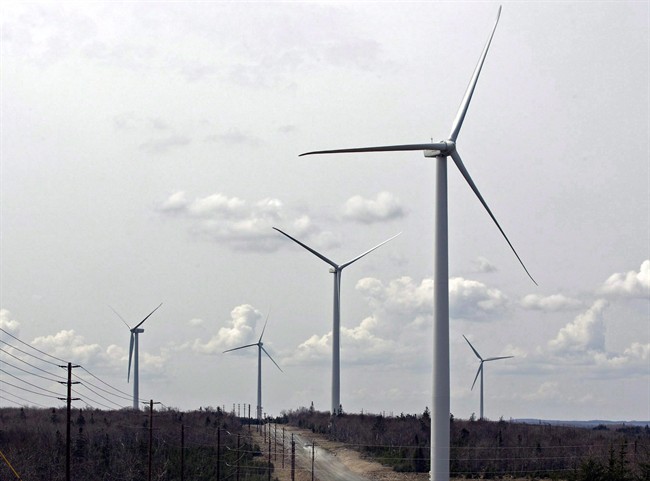TORONTO – An Ontario court has dismissed a set of appeals from four families which sought to have provincial legislation related to the approvals of large-scale wind farms declared unconstitutional.

In a decision released on Monday, a panel of three Divisional Court judges ruled against the claims of the families who were concerned about the potential health effects of living as close as 500 metres to the turbines.
The families had argued that provincial legislation makes it impossible to scuttle a project on the basis of potential health impacts.
The case was considered the first constitutional challenge to the Green Energy Act to reach the appellate court level.
At issue was the proposed $850-million K2 Wind project, which would see 140 turbines put up near Goderich, Ont, the 92-turbine Armow wind farm near Kincardine, Ont., as well as the smaller 15-turbine St. Columban project near Seaforth, Ont.
The provincial Environment Ministry had approved the projects and the companies argued their projects are safe.
READ MORE: Study suggests wind turbines have little impact on property values
In upholding the ministry approvals, the Environmental Review Tribunal decided it had no conclusive proof that turbines pose a health hazard to those living near them.
- High benzene levels detected near Ontario First Nation for weeks, residents report sickness
- Enter at your own risk: New home security camera aims paintballs at intruders
- Fishing vessel with crane, net arrives in Zeballos for orca calf rescue
- Beijing orders Apple to pull WhatsApp, Threads from its China app store
The panel of judges who heard the case found that the tribunal did not make an error in the way it dealt with the families’ claims that their Charter rights to security of the person were violated.
A lawyer for the families had compared the turbines to new neighbours who might drive you to distraction and out of your home because you have no legal way to deal with the situation.
The panel of judges, however, found that the tribunal had considered evidence related to the turbines adequately.
“It was clear from the Tribunals’ decisions…that they assessed and weighed the evidence of the post-turbine witnesses in light of the expert medical evidence which they heard,” the judges wrote.
“That evidence was to the effect that causal conclusions based solely on self-reported health problems were scientifically speculative and likely misleading and that the level of information provided in the medical records of the post-turbine witnesses was insufficient to allow a medical practitioner to make definitive causal assessments between diagnoses, symptoms and wind turbines.”
READ MORE: Wind turbines like ‘nightmare neighbours’ but law ‘rigged,’ court told
Earlier this year, Health Canada reported that a study of 1,200 residents in Ontario and P.E.I. turned up no sign of health problems caused by wind-turbine noise.
The noise might be annoying but had no link to sleep disturbances, dizziness, tinnitus, migraines, increased blood pressure, heart disease, or diabetes, the agency said.
Critics, however, argued Health Canada had not released details of what they called a poorly designed study and said it had yet to undergo any peer review.



Comments